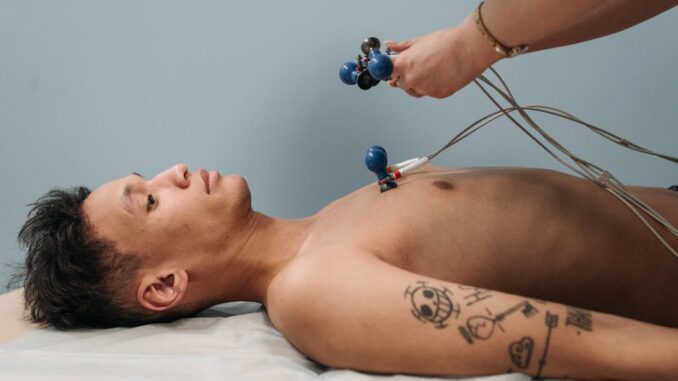
Summary
Researchers have developed an AI model that accurately estimates heart failure risk using single-lead ECGs. This breakthrough has the potential to revolutionize heart failure risk stratification, particularly with the increasing prevalence of portable ECG devices. Further research will explore implementation with wearable technology.
Reliability and uptime matter in healthcare TrueNAS provides 24/7 support when it counts.
** Main Story**
Artificial intelligence is really shaking things up in healthcare, and honestly, it’s about time. There’s been a recent breakthrough that I think you’ll find pretty cool – it could seriously change how we predict heart failure (HF). Some clever researchers have cooked up this AI model, see, and it’s noise-adapted. What that means is it can estimate your HF risk just by looking at single-lead electrocardiograms (ECGs). Now, why is that a big deal? Well, think about it. Single-lead ECG devices are becoming super common, I mean, you can get them anywhere, which means this AI could be a scalable, accessible way to figure out who’s at risk. And that’s huge.
AI-ECG Model: A New Era?
So, this study, which you can find over in JAMA Cardiology, talks about how they built and tested this AI model. It wasn’t just some small trial, either. They used data from different populations – Yale New Haven Health System, the UK Biobank, and even a Brazilian study, ELSA-Brasil. Talk about covering your bases, right? This multinational approach is critical because it means the model is more likely to work for different people, not just a specific group.
What did they find? Glad you asked. The AI model worked pretty well across the board. In Yale, something like 22% of patients screened positive using the AI. And get this, those folks had a five times higher risk of developing HF over about 4.6 years. The UK Biobank and ELSA-Brasil? Same story, more or less. A positive AI-ECG screening meant a five to nine-fold higher HF risk, respectively. Pretty impressive stuff.
Wearable Tech, Anyone?
Here’s where it gets really interesting. The AI model can use single-lead ECGs. So what, you might ask? Well, lots of wearable devices – smartwatches, fitness trackers, the whole shebang – they can record single-lead ECGs. It’s crazy the sort of health monitoring things we have access to. Imagine if this AI was built into those devices. You could have continuous, non-invasive HF risk monitoring happening in real-time, how good would that be for early intervention? We could potentially prevent hospitalizations and improve patient outcomes by a huge amount.
The Road Ahead
Now, it’s not all sunshine and rainbows. I mean, we need more research, for sure. Specifically, we need prospective studies to see how well this all works with wearable ECG devices in real-world conditions. Integrating this AI into wearables also brings up some important questions. Like, what about data privacy? How transparent is the algorithm? And what about biases – are we sure it works equally well for everyone? Equity is one of the most important things for these devices and interventions. Plus, we need to make sure this technology is accessible to everyone who needs it. Future research should focus on tweaking the AI model for diverse patient populations and making user-friendly interfaces for both patients and doctors.
AI: Not Just Heart Failure
This AI-ECG model is just one example of how AI is changing healthcare. I’m seeing AI popping up everywhere these days, it’s revolutionizing how we practice medicine. Diagnostics, treatment planning, drug discovery, remote patient monitoring, you name it. This model joins a growing list of AI-powered tools that promise to make healthcare more efficient, accessible, and personalized. We’ve got AI for early sepsis detection, breast cancer screening, even surgical robots. The possibilities are genuinely pretty scary when you think about it.
Final Thoughts
Estimating HF risk from single-lead ECGs using this AI model? That’s a huge step forward. And the fact that it could be integrated with portable devices and wearable tech? That’s a game-changer for early detection. AI isn’t going anywhere, and as it keeps evolving, I reckon we’ll see even more amazing applications that’ll transform healthcare for the better. Maybe you’ve noticed the amount of innovation recently too? I don’t know if it’s just me, but everything seems to be speeding up!


So, if my watch can now diagnose heart failure risk, does that mean I can finally skip my annual physical and just blame the algorithm if things go south? Asking for a friend, obviously.
That’s a great question! While the AI is promising, it’s definitely not a replacement for your doctor. Think of it more like an early warning system that can help identify potential risks. Annual checkups still give a more comprehensive picture of your overall health. It’s about using technology to *enhance*, not replace, traditional care!
Editor: MedTechNews.Uk
Thank you to our Sponsor Esdebe
The multi-national approach to data collection is a critical strength. Ensuring AI models work across diverse populations minimizes bias and promotes equitable healthcare outcomes, an essential consideration for widespread adoption of this technology.
Absolutely! The multinational data set was crucial. We wanted to ensure the AI model provides equitable outcomes for everyone. It’s not perfect, but it’s a solid foundation for future work adapting it for diverse populations. I’m really interested in exploring further collaborations to expand these datasets even more.
Editor: MedTechNews.Uk
Thank you to our Sponsor Esdebe
So, if my *smartwatch* suddenly yells “Heart Failure Imminent!”, do I get a free pass to skip leg day and eat cake, since I’m supposedly living on borrowed time anyway? Asking for a friend… who really likes cake.